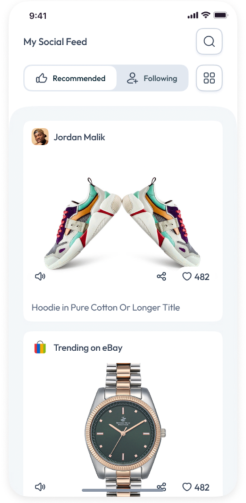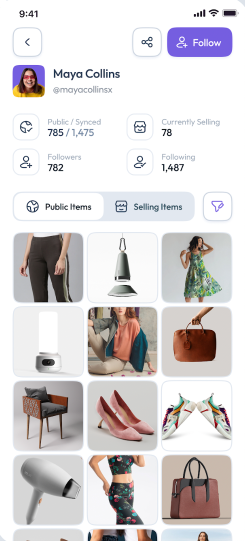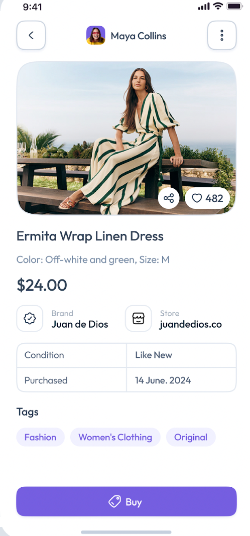KITME Is Building the First AI-Powered Digital Closet for Resale and Style Discovery
With roots in Stockholm and eyes on the global resale market, this startup is turning wardrobes into data-driven platforms for resale, discovery and social connection.

In the growing push for more sustainable fashion and smarter tech, one Stockholm-born startup is hoping to stand out by rethinking an unlikely space: your closet.
KITME, a digital closet and social commerce app, officially launched this spring after a stretch in development and quiet testing. The idea is straightforward. Users upload their clothing to a virtual wardrobe, and KITME’s AI organizes it, tags it, and makes it ready for either sharing or resale. But under the hood, the app is aiming to do more than just help people clean out their closets. KITME is trying to reshape how we view fashion as data, as social capital, and as a tradeable asset.
It’s a growing space. Secondhand shopping is expected to outpace traditional retail growth by a wide margin over the next five years, with platforms like Vinted, The RealReal, and Depop becoming household names. With social commerce growing fast and the resale economy projected to hit $350 billion globally by 2027, KITME is arriving at just the right time.
What KITME offers is something different. It doesn’t operate as a resale marketplace on its own. Instead, it positions itself as a tool that connects the dots between your personal wardrobe, your social network, and existing marketplaces like eBay.
Craig Kitto, KITME’s CEO and co-founder, says the startup is focused on merging social engagement with fashion. The app allows users to browse the closets of friends or influencers, discover trends organically, and even swap clothing directly through a feature called KITME Swap. It’s part lifestyle product, part resale utility, and part attempt to build a community around how people dress, and what they’re ready to part with.
“We wanted to make it easier for people to showcase their style, get inspired by their network, and extend the life of their clothing,” Kitto said in the company’s launch statement; the emphasis is on frictionless resale and digital-first fashion culture.

KITME’s AI does most of the heavy lifting. It fetches item metadata like product names, categories, sizes, and images from a user’s purchase history or uploaded photos. Listings can be shared publicly, kept private, or sent directly to resale platforms. For users, this cuts out the repetitive manual labor that usually comes with trying to sell a pair of jeans or a jacket online.
Right now, KITME integrates with eBay and plans to announce more resale partners soon. Users can also add items from categories beyond fashion: beauty, tech, and home goods are all part of what KITME calls a “lifestyle closet.”
What makes this a story worth paying attention to is how it taps into several macro trends at once. Social commerce is growing, especially among Gen Z, and consumers are increasingly blending curation with consumption. The idea of digitally browsing a friend’s closet is not far off from how people already interact with Pinterest boards or TikTok hauls. KITME wants to give that behavior structure and a built-in exit path to resale.

Stockholm has become a hub for circular economy thinking in fashion, particularly with the rise of 'Stockholm Style', and KITME fits into that lineage. The region is home to startups like Sellpy, Renewcell and Hack Your Closet, all tackling sustainability through business model innovation. KITME adds a layer of personalization and automation, without asking users to change their behavior dramatically.
That said, it’s still early days. The app is live on the App Store and is building out its user base across Europe and North America. There are obvious challenges ahead, including platform fatigue, resale saturation, and the difficulty of scaling a feature-heavy product. But KITME’s pitch is that it’s not a resale platform, it’s an infrastructure layer, one that any consumer can use regardless of where they prefer to buy or sell.

The team is betting that if closets become searchable, social, and data-rich, users will expect more from how they manage and monetize their wardrobes. Whether that turns into significant traction or just a niche utility for fashion-forward users remains to be seen.
You can explore the platform at trykitme.com or download it on the App Store and Google Play.

